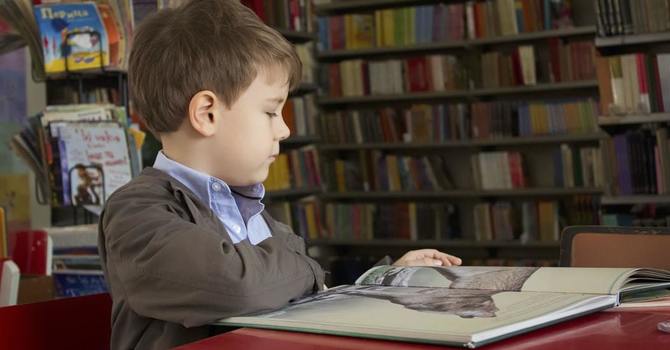Susan Rochow, M.Sc., Registered Psychologist
Last week (early August) as I contemplated what topic to focus on for this newsletter, I considered a number of important issues. However, I kept coming back to the topic of “vicarious traumatization” (i.e., feeling traumatized by an event which you were not directly involved in, but which you perhaps observed or heard about) in light of the recent theatre massacre in Colorado (July 20th) and security guard shootings at the University of Alberta (June 14th). Little did I know that before I would even get to write the article, another mass shooting would occur in a Wisconsin Sikh temple on August 5th. I, along with the rest of society, am left feeling shocked, puzzled, curious, sad, and angry. Many also feel afraid.
Much has been written about the details of these crimes, the victims, and the perpetrators. Of course, these are newsworthy events, and the victims certainly should be honored and remembered. However, what is the impact on society when we are bombarded with images and stories of these events?
I was completing my Master’s degree internship on September 11, 2001, when I awoke and learned that the World Trade Centre had been the target of a terrorist attack. The clinic that I worked at held an emergency briefing to prepare our counseling team to deal with the emotional repercussions of this event. Yes, even though the tragedy occurred nearly four thousand kilometers away in another country, it was understood that Calgarians would be profoundly affected and may require psychological support. In fact, still today as I sit with clients and explore their trauma history, it is not uncommon for people to talk about how they were traumatized by “9-11,” even though they were not there and did not personally know anyone involved.
It’s not surprising, really. It is almost impossible to imagine a living soul today who has not seen images of 9-11 on television, on the internet, or in
newspapers. Of particular concern is the impact on children. I remember hearing about teachers who brought TVs into the classroom to show the coverage to their students, without first getting consent from parents. I also remember hearing first-hand from parents that they had the TV on non-stop that day (and frequently on the days that followed), even in the presence of their children.
I am not claiming that media coverage of horrific events causes all viewers to be traumatized. However, I am suggesting that it is more common than one might think. What do we do then when we are inundated with these images and stories?
- Limit your exposure – Reading about the event in a newspaper or listening to the three minute coverage on the evening news will likely not have a profound effect. However, searching out video clips on the internet, watching documentaries, and viewing continuous news coverage may increase your risk of vicarious traumatization.
- Protect your children – Shield your children as much as possible from the media frenzy. Depending on their age, it may be impossible to keep the information completely from them given that they may hear about it from peers. However, you can ensure that the news is not on in their presence, and that adult discussions about the events occur only when little ones are out of listening distance. Monitor teens to ensure that they are not getting sucked into the media vortex, an educate them on the potential for vicarious traumatization. At the same time, do not be afraid to discuss the events when it is clear that your kids are aware of them. During these discussions, listen more than talk. Find out how your kids are doing and allow them to process their thoughts and feelings with you. Remember, we have two ears but only one mouth for a reason! When you do shift from listening to talking, do not emphasize the particulars of the event. Instead, focus on the unlikelihood of this happening to them, reassure them of their
safety, and, if necessary, teach them what to do in a similar event (i.e., if there truly is some level of risk, or if having a plan helps them to
feel safe).
- Refuse to live in fear – Talk about your thoughts and feelings (including fears) as needed, but go about your normal routine. If you are a parent, it will be important to instill in your children a sense of safety and security. This may require some fact finding and thought challenging. For example, as horrendous as the movie theatre massacre was, you could do some research on the number of movie theatres there are in North America, and the number of times there
have been shootings. Results will reveal that this was a highly uncommon event and that a person should feel quite safe in a theatre. Share these facts with your kids.
As you read this article you may be thinking, “I wish I knew this information a few months ago before I let my kids watch CNN!” You may even be experiencing some of the negative consequences of having tuned in too much. What are the signs that someone may be suffering from vicarious traumatization? Symptoms may include: increased fear and anxiety; difficulty managing stressors; avoidance of certain situations/activities; sleep disturbance; nightmares; feeling on alert or on guard; seeing the images of the event in your mind; mood swings; feelings of hopelessness or helplessness, etc.
If this is happening to you or someone close to you, there is help available. The first thing you need to do is realize that vicarious traumatization is real and normal. It is not a sign of weakness. Second, you need to know that while this may resolve on its own, it is also possible that you may need support from a professional. Third, you need to know that treatment is relatively quick and highly effective. If you are in need of support, we would be honored to help. Contact Darlene at intake@eckertcentre.com
or extension 33 to schedule counseling support with a member of our team.
By the way, did you know that first responders (e.g., police officers, firefighters, paramedics) and people who work in other helping professions (e.g., nurses, doctors, social workers, psychologists) are at great risk for vicarious traumatization? It is an occupational hazard that is rarely talked about but frequently experienced. If you are a helper who has been affected this way, consider counseling support for yourself. Remember, you have to put the oxygen mask on yourself before you can help others with theirs.
Susan is a Registered Psychologist providing assessment and counselling services at Eckert Centre. Susan makes a unique contribution to the Centre as a trained EMDR therapist, helping clients to heal from past traumatic experiences which may be affecting the present. She also provides faith based counseling services to our clients seeking counseling from a Christian worldview, and works with individuals,
couples, and families.


.jpg)